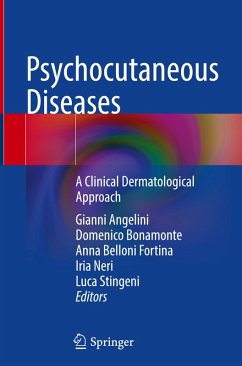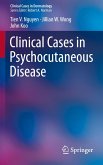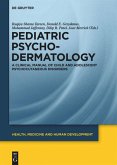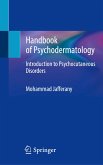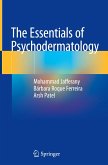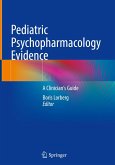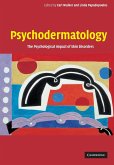The terminology, classification, diagnosis and treatment of dermatological factitious disorders, falling within the broad scope of self-induced dermatological diseases, are the subject of open debate. The complexity of the topic is also linked to the involvement of different health professions who often refer to different classifications, whereas patients with these conditions need a consistent multidisciplinary approach. The purpose of this work, resulting in decades of field experience and of the joint efforts of both dermatologists and psychiatrists, is to clarify the terminology of these disorders and, above all, to analyze their clinical characteristics in detail, the first and pivotal sign of suspicion and diagnosis.
Artificial dermatitis are self-induced diseases caused by various means and for diverse purposes. Illness can be mimicked with unlawful purposes, or to take advantage of professional situations (obtaining extension of illness, recognition of the condition as an occupational disease, reaching a higher class of invalidity). In these cases, the simulators are aware of their own action and its purposes. Conversely, there are cases of self-induced dermatitis dictated by psychiatric problems, such as psychosis, intellectual disability and personality disorders. Intrinsic motivation of such lesions is different: patient intends to draw attention, reacts to difficult environmental situations by involuntary somatization of the skin. Skin artifacts of illicit intent are true "simulations", while the lesions caused unconsciously by subjects with psychological disorders are "pathomimies". In addition to the groups of true simulation and "pathomimia", another group of self-provoked dermatoses is due to coercive habits (excoriations, tics) in conscious subjects who recognize the urgency of a self-harming action. Psychocutaneous Diseases leaves room to the clinic features and motivations of artifacts, both perpetuated on oneself and on other people ("by proxy" factitious disorders). The topic is completed by the addition of chapters by psychiatric specialists, in order to address pathogenetic problems and therapeutic guidelines, as well as contributions that integrate the approach with medico-legal expertise.
This unique work will support diagnosis by dermatologists, but also psychiatrists, psychologists, internists, forensic doctors and general practitioners.
Hinweis: Dieser Artikel kann nur an eine deutsche Lieferadresse ausgeliefert werden.
Artificial dermatitis are self-induced diseases caused by various means and for diverse purposes. Illness can be mimicked with unlawful purposes, or to take advantage of professional situations (obtaining extension of illness, recognition of the condition as an occupational disease, reaching a higher class of invalidity). In these cases, the simulators are aware of their own action and its purposes. Conversely, there are cases of self-induced dermatitis dictated by psychiatric problems, such as psychosis, intellectual disability and personality disorders. Intrinsic motivation of such lesions is different: patient intends to draw attention, reacts to difficult environmental situations by involuntary somatization of the skin. Skin artifacts of illicit intent are true "simulations", while the lesions caused unconsciously by subjects with psychological disorders are "pathomimies". In addition to the groups of true simulation and "pathomimia", another group of self-provoked dermatoses is due to coercive habits (excoriations, tics) in conscious subjects who recognize the urgency of a self-harming action. Psychocutaneous Diseases leaves room to the clinic features and motivations of artifacts, both perpetuated on oneself and on other people ("by proxy" factitious disorders). The topic is completed by the addition of chapters by psychiatric specialists, in order to address pathogenetic problems and therapeutic guidelines, as well as contributions that integrate the approach with medico-legal expertise.
This unique work will support diagnosis by dermatologists, but also psychiatrists, psychologists, internists, forensic doctors and general practitioners.
Hinweis: Dieser Artikel kann nur an eine deutsche Lieferadresse ausgeliefert werden.

